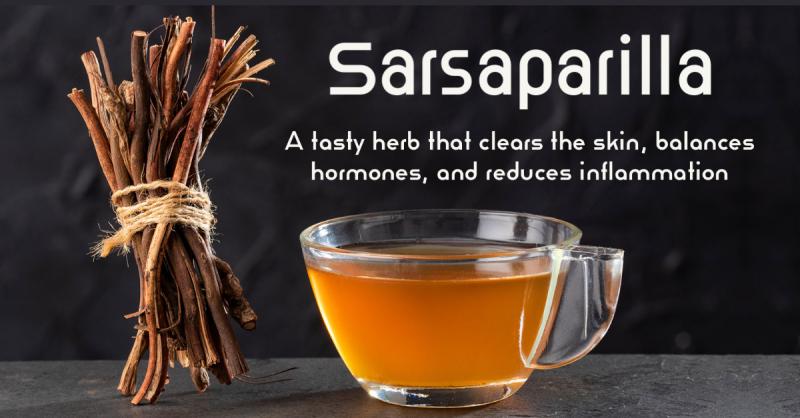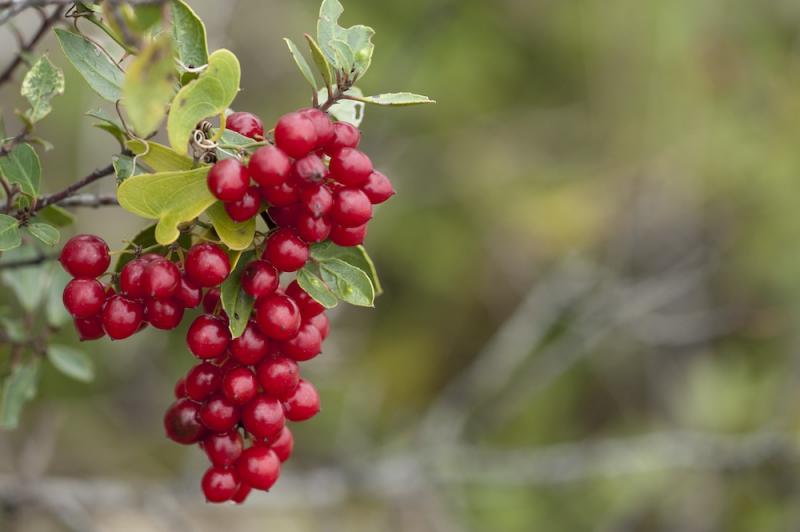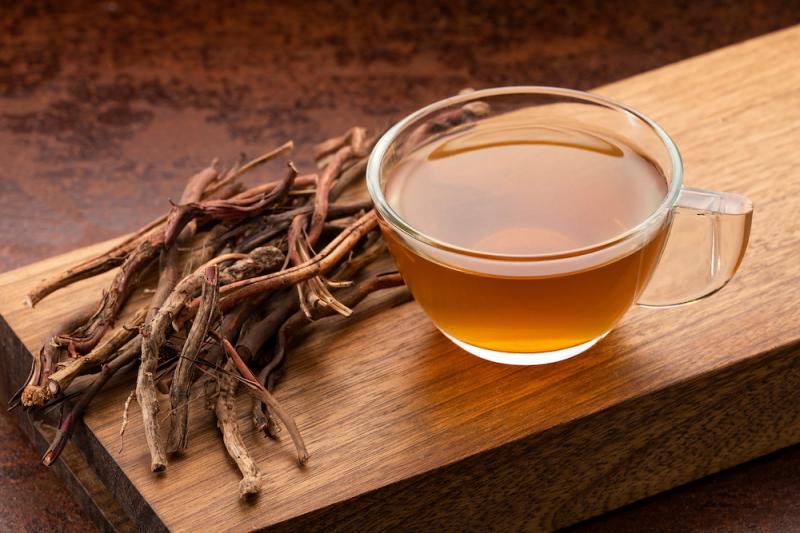
Did you know that the forerunners of many of today’s soft drinks were reasonably healthy beverages made with herbs? When I was young, we’d often have homemade root beer at family reunions and church socials. Old fashioned home-made root beer was made with actual roots and herbs, such as sarsaparilla, sassafras, ginger, licorice root, dandelion root and more.
During my teens, the downtown ZCMI department store celebrated its 100-year anniversary by converting its window display areas into old-fashioned shops, including a candy shop, bakery, and soda fountain. One of the drinks they served in their soda fountain was a sarsaparilla drink, which I really liked and suspect was relatively healthy too. Unfortunately, many of today’s sodas are just chemical soups in carbonated water, made with artificial flavorings, artificial or highly processed sweeteners, dyes, and stimulants.
Sarsaparrila Tastes Good
 Years later, I was inspired by these memories to use sarsaparilla as a flavoring agent when I was figuring out how to make formulas for my kids that actually taste good. I even called the glycerin extract of sarsaparilla I made to flavor my children's formulas my “root beer extract.”
Years later, I was inspired by these memories to use sarsaparilla as a flavoring agent when I was figuring out how to make formulas for my kids that actually taste good. I even called the glycerin extract of sarsaparilla I made to flavor my children's formulas my “root beer extract.”
Of course, sarsaparilla is more than just a flavoring. Sarsaparilla root is a blood purifier, also known as an alterative, which means it helps clean up out the body and restore health. Because of this I made a mild blood purifying formula for children containing red clover, dandelion, burdock, sarsaparilla, and a little licorice. It was quite tasty and easy to get my kids to take. I used it when they had a rash or other skin problems to help clear out their system.
Sarsaparilla Clears the Skin
Clearing up the skin is one of the traditional uses for sarsaparilla. It can be helpful for rashes, pimples, age spots, eczema, psoriasis, dry and itchy skin, and an emaciated look to the skin. It is best used in combination with other herbs depending on the specific problem.
When the skin is hot, red, and irritated, sarsaparilla combines well with gotu kola. To cleanse the skin (along with the liver and the blood), it combines well with burdock, dandelion, red clover, and yellow dock. For teenage acne, related to hormonal imbalance you can combine it with chaste tree and burdock.
Sarsaparilla and Hormonal Balance
This leads us to the second major use for sarsaparilla. It helps to balance steroidal hormones, specifically estrogen, progesterone, and testosterone. It is not directly hormonal but works on the endocrine system via the liver. Matthew Wood explains this in his book, The Earthwise Herbal.
The liver processes lipids into cholesterols, which the adrenal cortex and sex glands need to make steroidal hormones… Although many of these break down easily, some, such as androgens, are difficult for the liver to catabolize, so they stress the liver and favor the creation of what we call “dirty blood.” By detoxifying the blood, the liver clears the bloodstream so that the hypothalamus can get a better reading of its contents and regulate the endocrine system.
 Dorothy Hall claims the herb can also help with fertility in both men and women by helping to adjust hormone balance. In men, it is used for low sperm count, premature ejaculation, difficulty with erections, and low sex drive. In women, it has been used for difficulty getting pregnant, hot flashes, heavy menstrual bleeding, and type A PMS.
Dorothy Hall claims the herb can also help with fertility in both men and women by helping to adjust hormone balance. In men, it is used for low sperm count, premature ejaculation, difficulty with erections, and low sex drive. In women, it has been used for difficulty getting pregnant, hot flashes, heavy menstrual bleeding, and type A PMS.
As with its action on the skin, sarsaparilla works well in combination with other herbs depending on the situation. For improving testosterone levels, fertility, and sexual performance in men, try combining it with herbs like maca, epimedium, tribulus, tongkat ai, muira puama, and ginseng.
For improving fertility, easing PMS, resolving menstrual problems like fibroids and heavy menstrual bleeding, and supporting the process of menopause, try combining it with black cohosh, dong quai, blessed thistle, red raspberry, maca, and damiana.
Anti-Inflammatory Agent
 The saponins in sarsaparilla have the capacity to bind endotoxins and reduce inflammation. So, another popular use for sarsaparilla has been to reduce inflammation in arthritis, gout, and rheumatism. It has a mild diuretic effect and increases uric acid excretion. Again, it’s typically used with other herbs for this purpose. You’ll find it combined with devil’s claw, turmeric, bupleurum, alfalfa, yucca, and willow bark in formulas to ease joint and muscle pain.
The saponins in sarsaparilla have the capacity to bind endotoxins and reduce inflammation. So, another popular use for sarsaparilla has been to reduce inflammation in arthritis, gout, and rheumatism. It has a mild diuretic effect and increases uric acid excretion. Again, it’s typically used with other herbs for this purpose. You’ll find it combined with devil’s claw, turmeric, bupleurum, alfalfa, yucca, and willow bark in formulas to ease joint and muscle pain.
It also has a reputation for improving athletic performance, so I’ve also seen it in formulas for improving energy and stamina, including tonic formulas for the adrenals. It may have some adaptogenic properties, helping with overly stimulated adrenal glands, worry, nervousness, and fatigue.
If you're in the mood for some old-fashion root beer, you can try making a glycerin extract or honey-based syrup of sarsaparilla. Just add the extract or syrup to some sparkling water and you have a glass of medicine you can drink and enjoy too.
Downloads
Steven's Articles
-

-
Eucommia Bark
A superior tonic that promotes kidney, structural,…
January
-

-
Goldenthread, Phellodendron, and Yellow Root
Three herbal remedies containing the infection-fighting…
-

-
Teasel
A traditional herb for healing bones and joints…
-

-
Barberry and Healthy Personal Boundaries
A thorny shrub for fighting infections and supporting…
December
-

-
The Evidence for Berberine
A yellow alkaloid found in traditional infection-fighting…
-

-
The Sensible Use of Caffeinated Herbs
Kola nuts, guarana, and yerba mate and other herbs…
-

-
The Health Benefits and Problems with Coffee
This popular caffeinated beverage can be beneficial…
October
-

-
Understanding Caffeine & Cellular Adaptation
Preserving the power of caffeine's buzz and the…
September
-

-
Horseradish
A pungent spice for aiding protein metabolism…
-

-
Banaba or Crepe Myrtle
A beautiful tree from Southeast Asia whose leaves…
August
-

-
Monkeyflowers
Flower essences to help see ourselves more clearly…
-

-
Mariposa Lilies
Strengthening the bond between mother and child…
-

-
The Noble Bay Leaf
A common kitchen herb for aiding digestion and…
-

-
Epimedium: Horny Goat Weed
A circulatory stimulant and kidney yang tonic…
July
-

-
The Medicinal and Nutritional Benefits of Apricots
A nutritious fruit and valuable medicinal seed for coughs

